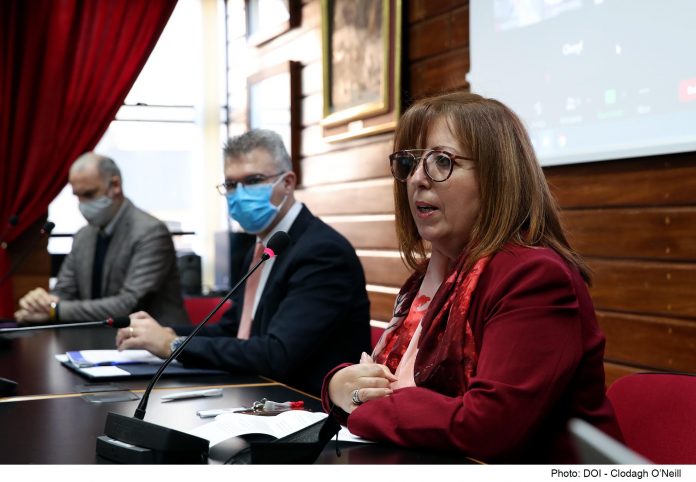
Minister within the Office of the Prime Minister Carmelo Abela took part in a discussion at the University of Malta against the background of the proposed changes to the Labour and Industrial Relations Act in order to implement the directive on work-life balance and the gender pay gap.
During this meeting, various topics were discussed, including that of equal pay for work of equal value and the reality of remote working and teleworking against the background of a survey being conducted by the University on such topics based on its employees.
The Pro Rector of the University Professor Carmen Sammut, Professor Josann Cutajar from the Faculty for Social Wellbeing of Gender, as well as various other stakeholders from the academic world were present. An additional number of academics along with students were also present virtually.
In his intervention, Minister within the Office of the Prime Minister Carmelo Abela said that the government has started the process of implementing the directive on work-life balance with the participation of the Department of Industrial and Employment Relations and the Labour Relations Board. This is being done in continuous coordination with unions and employers’ associations in order to develop a viable solution for the full implementation of this directive, which has to be transposed into Maltese legislation by August 2022.
He explained that, in the light of this directive, the labour market supply will improve through the encouragement of shared responsibility in raising children, as well as through the measure that will stipulate a ten-day parental leave. This will allow those entering the labour market to be fully involved in family life instead of resorting to reduced hours or even leaving work. According to Minister Abela, this will have a positive effect on the quality of life and rates of people in employment, leading to better wages and greater prosperity.
On the topic of gender pay gaps, the Minister said that there is a need to better analyse the current situation so that one can consider the way forward in addressing systemic differences between women and men.
Minister Abela emphasised that the government wants labour market laws which do not distinguish between nationality, race, gender or disability, because the government believes in the value, individuality and potential of every person in our population.
Professor Cutajar said that the proposed changes must take into account the different elements of society.
Professor Carmen Sammut explained the need for an awareness campaign once the concept of parental leave is introduced, so that it would not be abused.









